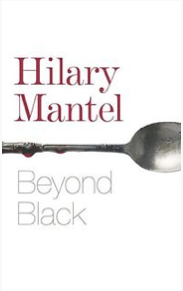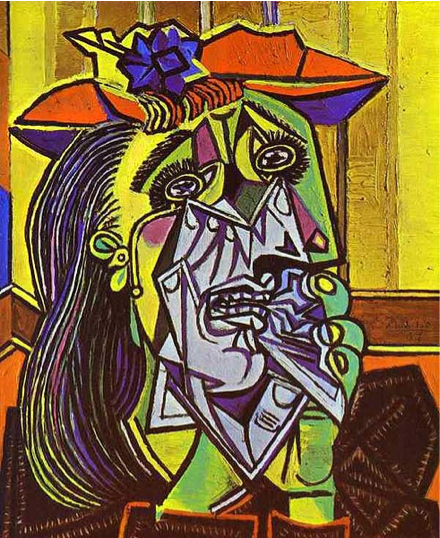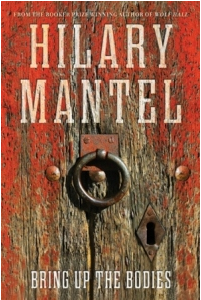Y.S. Lee's Blog, page 23
October 3, 2012
A reading streak
Hello! I’m just popping in to say that I’m on a Hilary Mantel streak. After finishing Bring Up the Bodies again (I started with Bring Up the Bodies, went back to Wolf Hall, then was impelled to re-read Bring Up the Bodies), I moped and pined for a while. Do you ever feel suspended between books? It’s a strangely unanchored feeling, for me, and I’m never quite settled until I’ve found my next book. I may start one or two novels or long works, or pick through a collection of poetry or essays, but I only really feel at home once established in a new book.
My husband finally ended my misery by giving me Beyond Black.
 I eyed it suspiciously for a few days. After all, I was carrying Thomas Cromwell around with me, and Beyond Black is not about Tudor politics. It’s set in contemporary England (well, 1997). It’s about ghosts. Hmph, I thought.
I eyed it suspiciously for a few days. After all, I was carrying Thomas Cromwell around with me, and Beyond Black is not about Tudor politics. It’s set in contemporary England (well, 1997). It’s about ghosts. Hmph, I thought.
I didn’t love the first, very short, chapter. It was heavily descriptive, with some sharp and compelling images, but it seemed to hover.
And then I turned the page and was completely sucked in.It’s nasty and hilarious and ruthless. It’s about some extremely unpleasant people. And it’s genuinely frightening.
You guys, I love it.
What are you reading, this week?
September 27, 2012
Inspiration
Hello friends, and apologies for being late with this post. There’s no good reason, except that my son had a PD Day at school on Monday, so I didn’t realize that yesterday was Blogging Day until, well, this morning.
But I’m here to make it up to you! My spouse recently mentioned two utterly awesome videos, which I have to share with you. (Nick detests online videos, so when he gets enthusiastic about one, I pay attention.) The first is of an 86-year-old gymnast named Johanna Quaas performing a routine on the parallel bars. Watch and be humbled and awestruck:
The second is of tiny-home author and activist Lloyd Kahn, who took up skateboarding in his 70s. Yes, indeed. This video is very wobbly in bits, and it’s too long, but sometimes you just need ocular proof:
Courage, focus, persistence.
Smashing stereotypes.
Embracing the new.
Loving learning.
I don’t think I need to spell out how much I admire these two people, and how much I want to learn from them. My new goal is to try something completely new and scary in each decade of my life. Maybe even gymnastics or skateboarding.
What do you think? Have Johanna Quaas and Lloyd Kahn inspired you?
September 19, 2012
Twitterpated
Hello there, friends. This post is going to be about Twitter and its (mis)uses, so if you’re anti-Twit, you may want to look away now.
So. I am on Twitter. I am a very, shall we say, casual Tweeter. I log on a couple of times a week, I stay for an hour or so, and then I’m off. I am aware that this is not How You Tweet Big Time and Create an Army of Followers. For me, that’s fine. I have a very limited amount of time for social networking, I can think of better ways to procrastinate (making my delighted way through the collected works of Hilary Mantel springs to mind), and – I think this is the key – I don’t have a smartphone.
My cellphone is older than my firstborn child. Put differently: it’s so old that I have to text using the number pad. Yes, I press “1″ seven times, just to get an exclamation point. So to use Twitter, I have to be sitting in front of my (only slightly less ancient) laptop. And I am not one of the gifted few who can Tweet and write fiction at the same time, so when I sit down to work, I only log on to Twitter when I’m stuck.
I do enjoy Twitter, when it’s good. I follow some fascinating and funny people. I have terrific conversations, from time to time. I’ve found a couple of new favourite blogs and news sites because of Twitter links. But when Twitter is bad, it’s like a collection of the most boring and self-regarding pub-ranters in the universe, mounted on soapboxes, braying through megaphones about their special interests. And increasingly, I find myself wondering, “What am I doing here?”
So, I’m turning to you, dear readers, for advice: how do you use Twitter? Do you love it (or at least really, really like it)? What’s the best thing you’ve found about Twitter? What one thing you avoid doing on or about Twitter? Any other words of wisdom?
Thank you!
September 12, 2012
Hello, old friend
I am finally feeling a return of the autumn love, my friends, and today I want to share some of the things I like best about it:
Crisp nights.
Jeans.
Pears and apples.
Stacking firewood. (It has its own zen rhythm.)
The bounty of the farmer’s market.
Little kids getting excited about Hallowe’en costumes. Already.
Fall colours, of course.
The last of the crazy-sweet cherry tomatoes. We had some fabulous yellow gourd-shaped ones this year that were, honestly, better than candy.
Also, my uncle emailed to ask if I’d seen any moon cakes or lanterns in Kingston, which are part of a traditional Chinese Mid-Autumn Festival. It’s on September 30 this year, and I hadn’t even thought to look yet! (I’m not a moon-cake girl, but they are beautiful and I always want to trace them with my fingers. And who doesn’t love a paper lantern?) So there’s the Mid-Autumn Festival, too.
The rapid descent into winter. Maybe fall’s real appeal, for me, is its brevity. I cherish it because it’s such a brisk, idyllic time.
What are you looking forward to, this autumn?
September 5, 2012
In praise of Hilary Mantel
Hello, friends! This summer, while on vacation, I wandered into Armchair Books, the lovely independent bookstore in Whistler, BC. (It’s a great bookstore – well-curated, friendly staff who are happy to special-order for you, and they have a ladder that slides along the wall on a rail, so you can reach the really high shelves!) I wasn’t looking for anything in particular and ended up buying Hilary Mantel’s Bring Up the Bodies, purely because the first paragraph bowled me over.
I normally have a thing about reading books out of order (Bring Up the Bodies is the continuation of, but not really a sequel to, Mantel’s Booker-Prize-winning Wolf Hall), but it was so good I couldn’t stop. I read it obsessively, delightedly, and frequently gasping with admiration for Mantel as a writer.
There’s been a great deal said about Bring Up the Bodies, obviously, but today I want to talk about three things that particularly struck me (continue to strike me, since I’m now reading Wolf Hall and savouring every last sentence) about Mantel’s writing. These are things that really set the books apart from me, and have me determined to read Mantel’s entire body of work and to pray for her continued good health for many decades to come.
1. She writes in the continuous present tense (unless her protagonist, Cromwell, is remembering something from his past). This seems like an obvious point, but the effect is of extraordinary immediacy. You’re right there, in medias res, and it never ceases. However, pulling this off through a big fat novel is so hard to do, I can’t even…
2. She eschews self-consciously poetic language. Mantel isn’t a “beautiful” writer, in the sense that her prose is larded with metaphor and excess padding. But her choice of words is exquisitely direct, and she knows that less is more. The pared-down quality of her prose is, instead, poetic.
3. She is a master of understatement. She doesn’t spell out a single thing unless it’s absolutely essential. Significant things happen in the interstices. The reader gets it. And it’s all the more powerful because it hasn’t been announced, parsed, and summarized.
If it’s not already glaringly obviously, I would love to write this well, one day. In the meantime, I’ll work away at my own books, read others, and gloat over the fact that the world contains books this astonishingly great.
What have you read recently that blew your mind? What, specifically, did you admire about it?
August 29, 2012
Back to wha?
Every August, my husband and I look at each other and ask, “What happened to summer?” Then we start assembling school supplies, picking apples (we have 2 trees in our garden), making pesto, ordering firewood, digging out the jeans and sweaters, and generally getting on with autumn. I love fall. It’s my favourite season, I’m somewhat obsessive about school supplies (I desperately coveted the 64-pack of Laurentian pencil crayons, all through elementary school), and I love it when the evenings get cool enough to wear a cardigan as I stroll by the lake.
But this year, I’m just not feeling it. My kids are going to school (eek!) and daycare (double eek!) next week. Nick’s already started his course prep. But here I am, thinking, “Autumn. Huh. Maybe I’ll make another batch of ice cream.”
I assume that something, in the next week, will nudge me into gear.
How about you? Are you eager for September? Idling, like me? Grimly resolved, come what may?
August 22, 2012
Sniffle, Sob, Sigh
Hello, friends! I was recently talking to my friend Sarah, who confessed that there is a recurring fictional scenario that never fails to make her cry: it happens (frequently in detective novels) when a character survives an ordeal, only to realize that at last, she feels safe. Another friend, whom I’m not at all sure would like to be named, is consistently moved to tears when characters behave better than they thought themselves capable.

Picasso, Weeping Woman (1937)
Me, I’m a shameless blubber. For example, the scene in George Eliot’s Middlemarch, when Mrs. Bulstrode learns of her husband’s disgraceful past and responds with such humility and devotion? Gets me every time. But I’m not afraid of the obvious, either! The “Doomsday” episode of Dr. Who, when Rose Tyler parts forever from the Doctor? I was soggy with tears. (My husband, who saw it first, warned me. He knows me and he warned me. And yet, the end completely dismantled me).
This is the only way in which I (very slightly) resemble Charles Dickens, who also loved vicarious sentiment. He once said, of going to the theatre, “I invariably begin to cry whenever anybody on the stage forgives an enemy or gives away a pocket book.” If Dickens can weep at trivial incidents and contrived situations in public, that’s good enough for me.
So, this week, please tell me: are you a soft-hearted weeper, or one of the dry-eyed types who look so bemused at my type?
August 15, 2012
Crime Scene 2012
Hello, friends! I had an absolutely splendid time this past weekend at Scene of the Crime, and thought I’d share what I could with you. I had a great “handler” at the festival (basically, a person assigned to make sure the visiting author is supplied with coffee and doesn’t get lost), a Wolfe Islander named Kristina, but I forgot to ask her to take some photos while I was reading & panelling, so mea culpa for the absence of pics.
Scene of the Crime has a perfect setting: Wolfe Island. Wolfe is the largest of the Thousand Islands, it’s a gorgeous ferry-ride from Kingston (excitingly remote!), and it’s the kind of island where everybody knows everybody and everything is connected. All ten authors stayed at the same B&B. YOU GUYS. Could someone please write a cozy, locked-room mystery featuring ten mystery writers in a rural B&B? Thank you.
When I asked organizer Violette Malan how many people she was expecting, she waved her hand and said, “Craploads. Actually, we’re at capacity. We never turn anyone away, but we can only guarantee meals for 100.” This is the genius thing about SotC: it’s small, it’s friendly, and there’s zero room for pretension. I got to chat – really chat – with readers. I learned that some bookclubs do road trips together (hello, Jane and the Stratfordians!). Another reader & writer (hi, Susan!) taught me the finer points of church hall dinners (tip: snag your pie at the beginning of the meal. You get the best selection, plus you can go back for seconds while looking all innocent). And, speaking of church-lady dinners, we were so very well fed. I’m in awe of the SotC Board and volunteers, who worked incredibly hard and made everything look so very easy. Thank you for inviting me!
My fellow authors at SotC were Thomas Rendell Curran, who writes detective fiction set in pre-Confederation Newfoundland – a setting that, as he says, completely justifies description of the weather in a novel’s opening; D. J. McIntosh, author of The Witch of Babylon, who offered the most succinct writing advice I’ve heard in some time: on the first page of your crime novel, “avoid boredom”; and John Moss, who writes the Quin & Morgan series set in Toronto, and who is fascinating on the subjects of old limestone houses, swans, and beekeeping.
Then there were the ladies. Not just any ladies, but the Ladies Killing Circle. They crack jokes. They wonder – very seriously – whether there is enough wine. And they represent, among other things, two decades of crime fiction written by Canadian women. When accepting their Grant Allen Award for contributions to Canadian crime writing, member Vicki Cameron explained that in the early 1990s, it was incredibly difficult for women writers of crime fiction to be taken seriously, let alone get published. So the LKC (which began as a critique group) called for submissions and edited their own anthology, also called The Ladies Killing Circle. This wasn’t vanity publishing: stories from each of their seven anthologies have won mystery-writing awards. And they’ve launched the careers of a number of Canadian writers, as a result.
The Ladies are vicious in name only; you couldn’t find a more welcoming, generous, congenial group of authors. And they’ve inspired me to work at building my own writing community. In fact, that’s one of my goals for this fall.
So that was my Scene of the Crime 2012. What are you up to, in the dwindling weeks of August?
August 8, 2012
At the Scene of the Crime
Hello, friends! I’m so excited about this week. Tomorrow, I’ll be skyping with a group of YA readers in Prescott, Arizona. And this weekend, I’m appearing at the Scene of the Crime Mystery Festival on Wolfe Island, Ontario. I’ll be there with DJ McIntosh, John Moss, and Thomas Rendell Curran, as well as the deliciously named Ladies Killing Circle.
I love Scene of the Crime. It’s friendly, informal, and it includes a church-ladies’ dinner that usually ends with pie. The first time I went, I was an aspiring writer and I went at the encouragement of my friend Jay Ridler. I met – gasp! – Real Live Authors, who were approachable and funny, and with whom we all went for drinks afterwards. So I’m especially thrilled to be going back this year as one of the authors. I will do my best to be as engaging and welcoming as they all were to me. If you’re in the Kingston area, please come! It’ll be delightful.
August 1, 2012
Faster, Higher, Stronger
So, the Olympics. As cynical as we’ve become about doping, fiscal and political scandals in host cities, and the sheer pomp of the Games, the athletic performances themselves are truly stirring, skin-prickling stuff. And the Olympics hold a special kind of interest in my family because my uncle, Cheah Tong Kim, represented his country, Malaysia, in swimming at the 1964 Tokyo Olympics. Over the past few days, watching highlights from the London Games got me thinking back to the birth of the modern Olympics. I knew they were a late-Victorian inspiration that resulted in the 1896 Games in Athens. But, as it turns out, there’s a lot I didn’t know about the inspiration behind the modern Olympic Games.
Before the Victorian era, there was a modern attempt to recreate the Olympic Games: the L’Olympiade de la République, which was held for 3 years in revolutionary France (1789, remember?). It makes sense: egalitarianism, a chance to compete physically, rather than socially or economically – it was a perfect kind of celebratory contest for revolutionary times.
Then came a lapse of about 60 years, which also makes sense: Victorian intellectuals greatly admired classical literature and culture, and it’s logical that they wanted to emulate the famous athletic contests of the ancients. But the French Revolution scared the pants off Western European monarchies, so there had to be a lapse of a few generations between the L’Olympiade de la République and any safe imitation.
So it wasn’t until 1850 that an English surgeon called William Penny Brookes established an Olympic Games in Wenlock, Shropshire. According to wikipedia, his aim was the “moral, physical and intellectual improvement of the inhabitants of the town and neighbourhood of Wenlock and especially of the working classes” (italics mine). That sort of paternalistic do-gooding couldn’t really be more Victorian.
There were other English Olympics: in Liverpool, for a few years in the 1860s. One at the Crystal Palace in London in 1860. But it was the Wenlock Olympics that really became a strong annual tradition. And in 1890, Baron Pierre de Coubertin, the creator of the modern Olympic Games, visited Wenlock and was inspired to establish the International Olympic Committee. Extraordinary, isn’t it?
How do you like the sound of Wenlock 2050, on the two-hundredth anniversary of their first Olympic Games?




